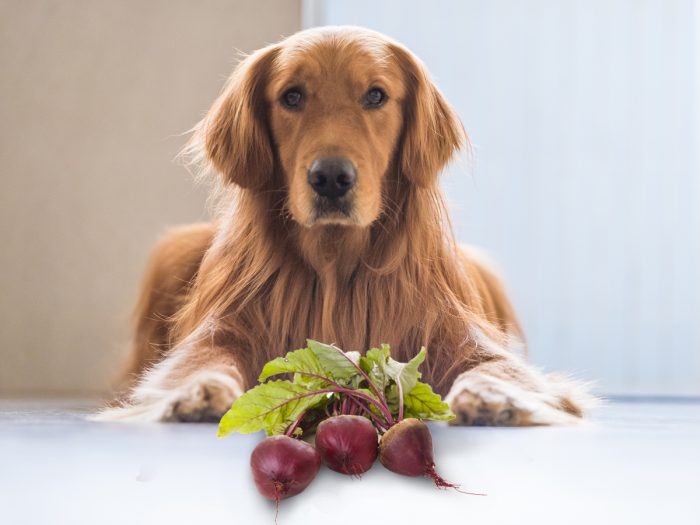Beets aren’t the most common food on your table, but when dogs eat beets, it can cause some concern for pet owners. While there isn’t any immediate danger to your pooch, it is important to understand the potential side effects of any human food in your canine companion.
Can Dogs Eat Beets?
It is safe for dogs to eat beets, as they are generally considered a healthy food and the active ingredients don’t pose any immediate threat to your dog’s health. However, a dog’s normal diet should provide all of the nutrients it needs, so any type of human food should be seen as an occasional treat, not a regular supplement or meal replacement.
Beets do have a very high concentration of certain nutrients and could be beneficial for certain dogs as they age, or if they are having specific medical conditions. All of this should obviously be discussed with your veterinarian, who can give you proper advice on the diet for your dog. On the whole, however, dogs can safely eat beets, but only in moderation. Also, if you are ever going to let dogs eat beets, it would be better if they weren’t cooked or seasoned. [1]
There is a good amount of iron and dietary fiber in beets, which could potentially help your dog’s health, if they are at risk of being anemic, or if they have gastrointestinal problems. The soft texture also poses no choking risk, and there are no known toxins in beets that would be inherently dangerous to your pup. [2]

Have you fed your dog beet? Photo Credit: Shutterstock
Side Effects of Dogs eating Beets
As with any human food that you give to your dog, you should practice moderation, or else there can be certain side effects such as diarrhea. An excessive amount of dietary fiber can quickly lead to stomach problems in dogs since it will get the digestive system working in overdrive. If your dog shows any signs of stomach upset, bloating, cramping, loss of appetite or diarrhea, stop giving it beets. There is a small chance of allergy as well, so pay close attention when first giving your pooch this vegetable. [3]
